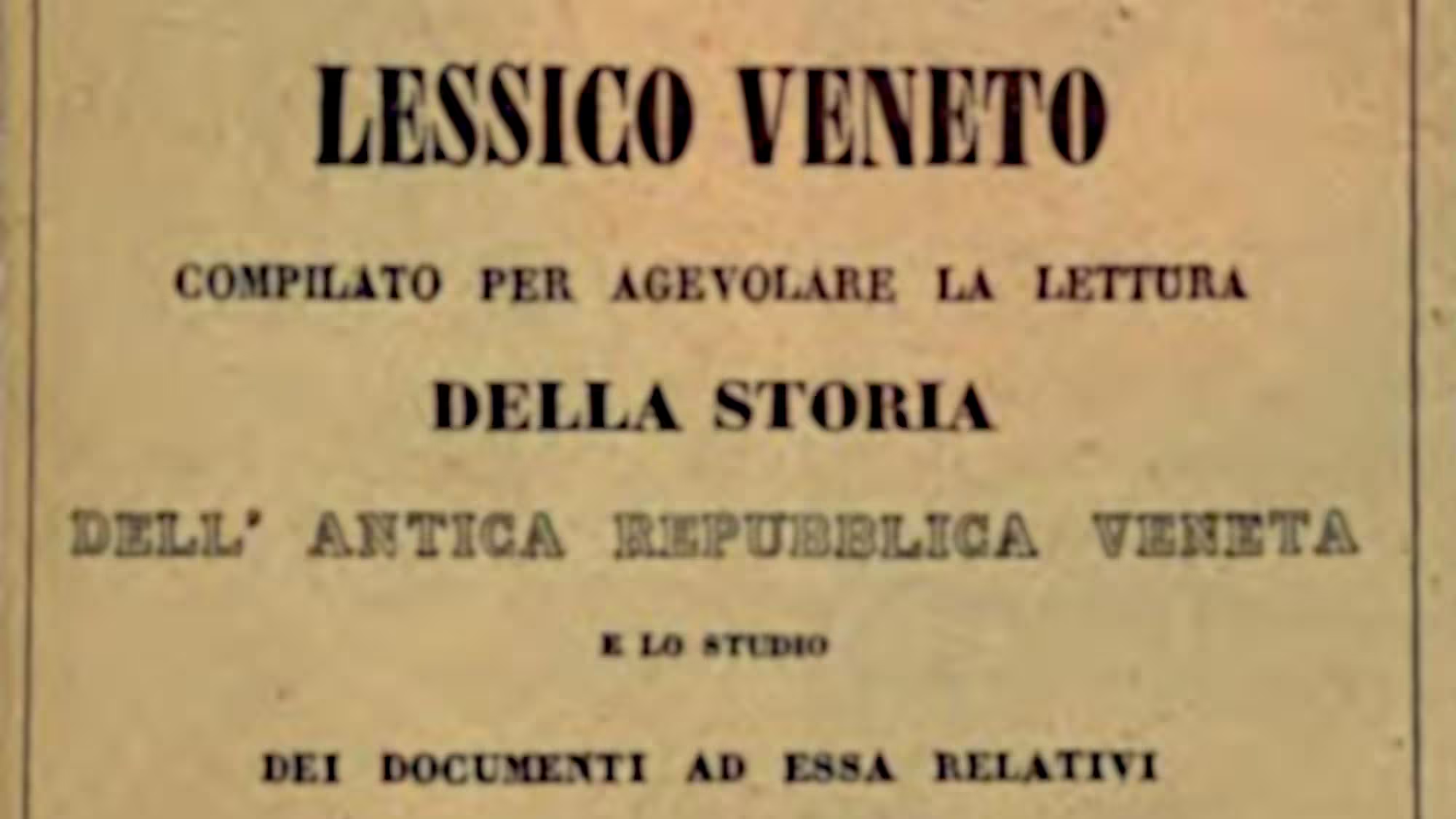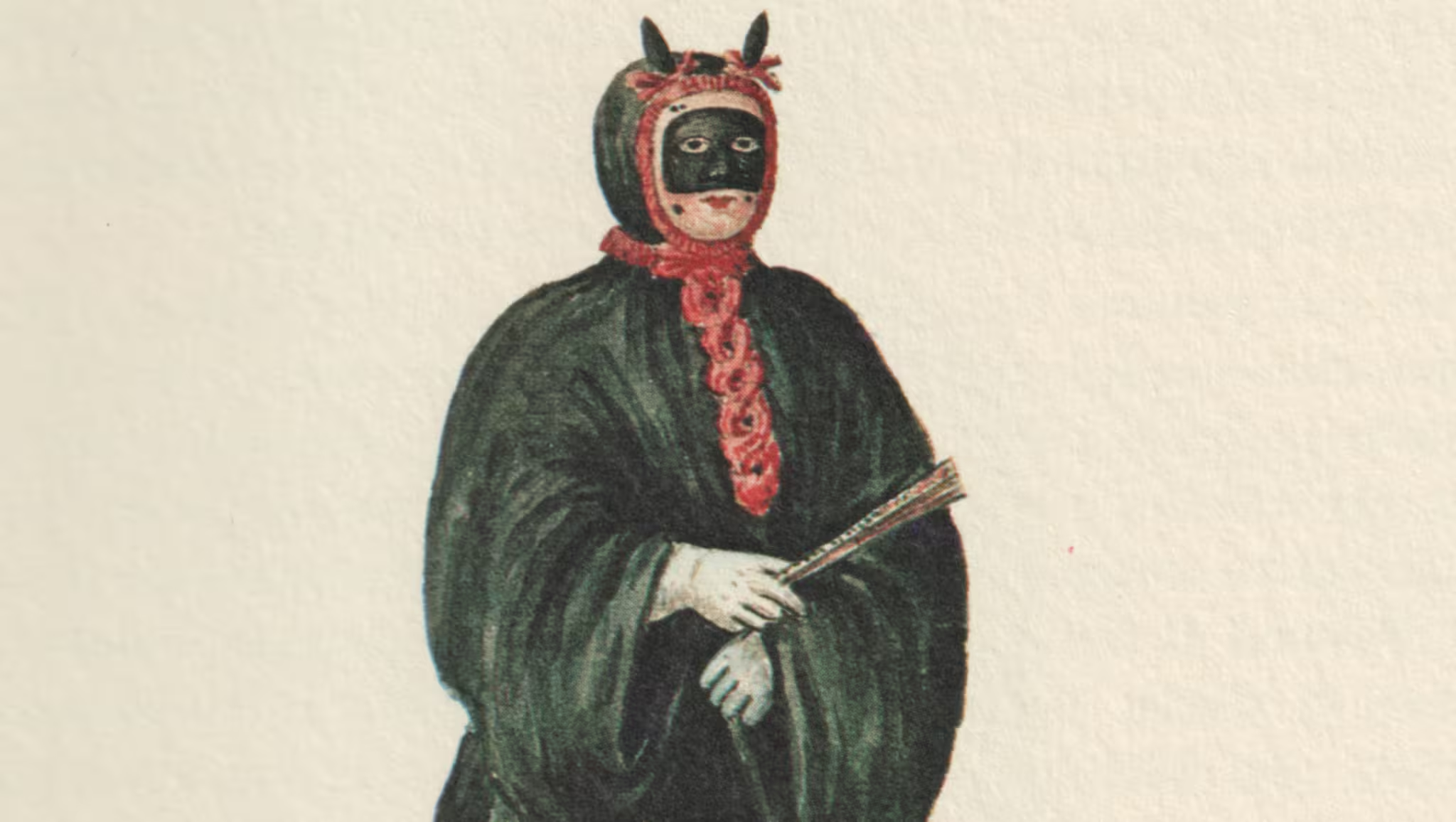Pregadi
The Lessico Veneto (Venetian Vocabulary) by Fabio Mutinelli was published in 1851. It is an invaluable tool for anybody who reads texts from the time of the Republic of Venice.
Fabio Mutinelli (1797-1876) was director of the I. R. Archivio Generale di Venezia (1847-1861), and a prolific writer on the history of Venice.
PREGADI, Pregai. The senate, whose origins dated back to the most distant times of the republic, was called Pregadi, and this because the doges, on the occasion of serious and important affairs, in those early times used to ask the most judicious and wise citizens to offer their opinion, always reserving, however, the decision to the Consiglio Maggiore. However, since this usually conformed to the opinion of the Pregadi, i.e. the people chosen and begged by the doge, who could therefore give rise to the suspicion of siding with him, thus, as the ducal rights became restricted in the thirteenth century, it was wanted that the body to be consulted was elected by the said Greater Council and called the Senate because it was composed of the most reputed and esteemed citizens: in any case, although it was no longer begged for but elected, the Senate always retained the name of Pregadi. Once the Senate was made ordinary in the year 1229 and was made up of sixty individuals and presided over by the Doge with his Consiglio Minore,1 it was entrusted first with the management of all commercial affairs, flourishing in those days; then with the appointment of ambassadors to foreign princes and merchant ships to other nations, it being considered that everything that was done by that body should have the force as if it had been decreed by the Consiglio Maggiore. Then (in the year 1363) it was entrusted with the management of affairs of war, delegating to it, at the beginning of the fifteenth century, any political and economic question; since the burden of the negotiations became more and more serious and important, an Adjunct2 of twenty others, who had recently returned from legations to princes, or from offices outside the city, was assigned to help the sixty members, and this because, informed of the political relations of one’s own nation with foreigners, could render a more advantageous service. This Adjunct was then increased by another twenty individuals at the beginning of the fifteenth century3 and by another twenty in the middle of the same century, so that the number of people making up the Adjunct equalled that of the others who properly formed the Pregadi, or senate. The age to be elected as senator or Adjunct was set at thirty-five years of age, and at the age of thirty for those who had been ambassadors to crowned heads, or had ruled twice subject cities.
Translator’s notes
- Also called the Consiglio del Doge (Council of the Doge) or the Serenissima Signoria. ↩︎
- There’ are several layers of translations here. When Mutinelli wrote Aggiunta in Italian, he translated from the Venetian original of Zonta. It meant the same in Venetian, but it was also the proper name for the enlarged segment of the council, and the formal title for the persons occupying the additional positions in the Pregadi. ↩︎
- The first enlargement happened in 1363, then in 1412 and 1450. ↩︎
Original text
PREGADI, Pregai. Il senato, la cui origine rimontava ai più lontani tempi della repubblica, chiamato era Pregadi, e ciò perchè i dogi, nella occasione di gravi ed importanti affari , pregar soleano in que ‘ primi tempi i cittadini più assennati e sapienti a porgere la loro opinione, riservata però sempre la decisione al Maggior Consiglio. Siccome però questa conformavasi solitamente al parere dei Pregadi, cioè delle persone scelte e pregate dal doge, le quali per ciò potean far sorgere il sospetto di parteggiare con lui, così, ristrignendosi, nel decimoterzo secolo , i ducali diritti, si volle, che il corpo da consultarsi fosse eletto dal detto Maggior Consiglio e chiamato fosse senato perchè composto dei cittadini più reputati e degni di estimazione : ad ogni modo, quantunque più non si pregasse ma si eleggesse, il senato conservò sempre il nome di Pregadi. Reso ordinario nell’anno 1229 il senato formato di sessanta individui e preseduto dal doge col suo Consiglio minore, gli si commetteva il primo maneggio degli affari tutti del commercio, floridissimo in que’ giorni : quindi l’invio di ambasciatori a principi forestieri e di navi da mercato ad altre nazioni, ritenendosi, che tutto ciò che fosse stato fatto da quel corpo dovesse aver vigore come se fosse stato decretato dal Maggior Consiglio. Poi (anno 1363) gli si affidava il maneggio degli affari della guerra, delegandoglisi, nel principio del secolo decimoquinto, qualsivoglia oggetto politico ed economico; di guisa che fatta sempre più grave ed importante la soma dei negozii fu destinata in aiuto dei sessanta membri un’Aggiunta di altri venti, che di fresco fossero ritornati da legazioni presso principi, o da officii fuori di città, e ciò perchè, informati dei rapporti politici della propria nazione colle forestiere , render potessero un più vantaggioso servigio. Questa Aggiunta poi fu nel principio del secolo XV accresciuta di altri venti individui e di altri venti alla metà del secolo stesso, laonde il numero delle persone componenti l’Aggiunta andò ad adeguar quello delle altre che formavano propriamente il Pregadi, o senato. L’età per essere eletto a senatore, o ad Aggiunto era determinata ad anni trentacinque, ed a trenta compiuti per coloro che fossero stati ambasciatori a teste coronate, avessero due reggimenti in città suddite.
pp. 309-310





Leave a Reply